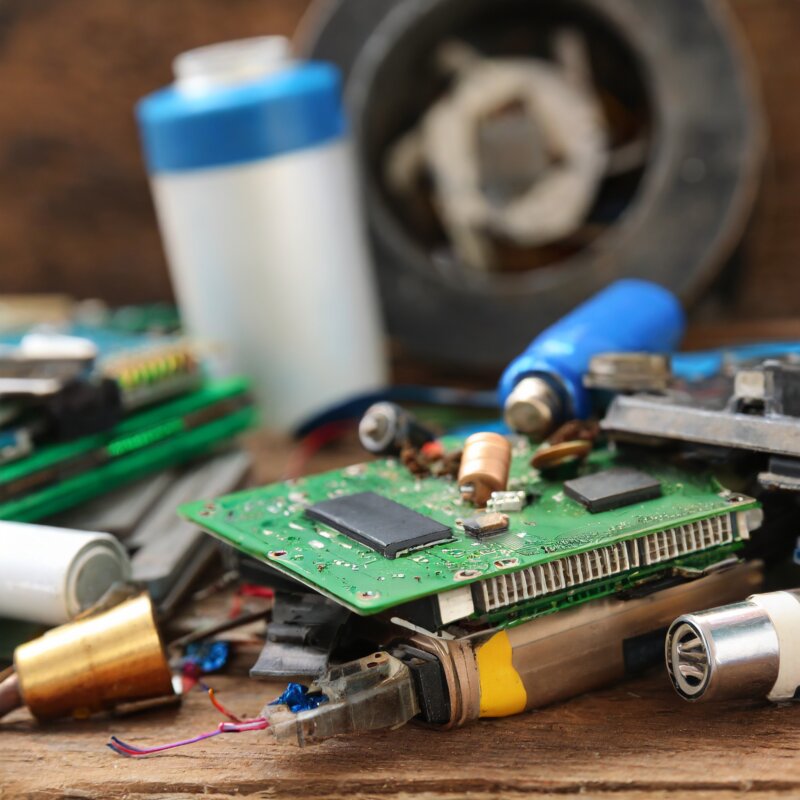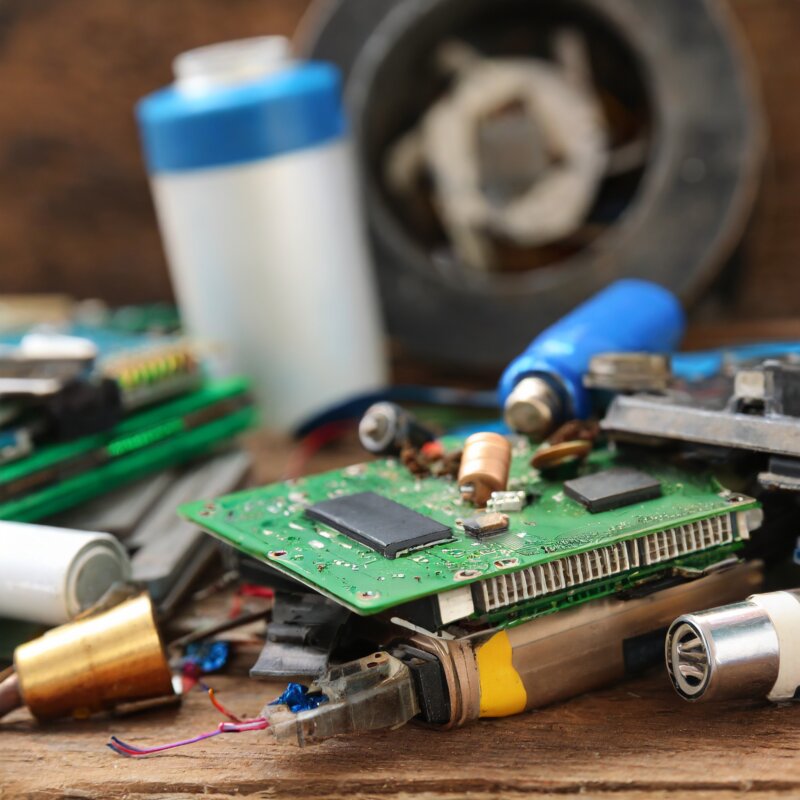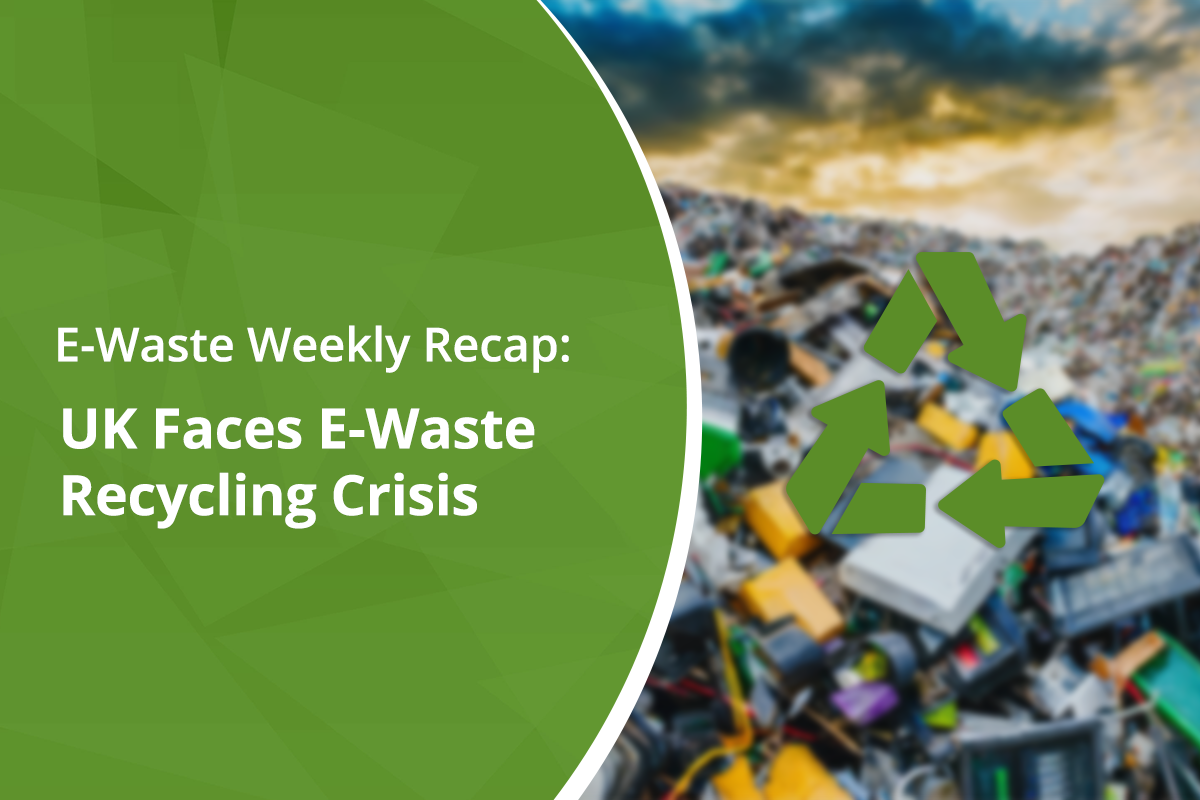Table of Contents
The management of electronic waste has risen to the forefront as one of the most critical environmental and sustainability challenges in contemporary times, with the accumulation of discarded electronic devices steadily increasing at an alarming pace.
UK Faces E-Waste Recycling Crisis
A recent study has revealed a shocking statistic: around 471 million small and inexpensive electrical items, including disposable vapes, cables, LED lights, USB sticks, and miniature fans, ended up in UK landfills over the past year.
Described as “fast tech” that urges consumers to reconsider purchasing such items as they often contain valuable materials like copper, lithium, and stainless steel.
These materials can be recycled and repurposed in products like wind turbines, medical devices, and also electric vehicles.
Furthermore, It’s estimated that UK citizens spent over £2.8 billion on these disposable products in the past year.
The study indicates that this problem is just the tip of the iceberg, with more than 100,000 tonnes of waste electricals discarded annually, and a staggering 880 million unused electrical items languishing in UK homes.

Call for Ban on Single-Use Vapes
Research has uncovered a concerning trend in the UK – a fourfold increase in the disposal of single-use vapes, with a staggering five million discarded every week.
This equates to eight vapes discarded every second, with the added concern that their lithium content could produce 5,000 electric car batteries annually.
The situation has been deemed “out of control” and has been insisted that the estimated £200 million cost of collecting and recycling these vapes should be covered by the industry.
The surge in disposable vape sales, exceeding 360 million annually, has prompted pediatricians to label vaping as an “epidemic among children” and call for a ban on disposable vapes.
The research highlights the need for clear recycling information and additional drop-off points in stores, parks, and also public places to encourage recycling.

Advancing Sustainability Through Electronics Recycling
The electronics industry is under mounting pressure to reduce its carbon footprint, and electronics recycling, or e-waste recycling, is becoming a pivotal focus for manufacturers striving to align environmental responsibility with business growth.
E-waste recycling involves disassembling discarded electronic devices and extracting valuable materials for reuse in new products, addressing the growing issue of electronic waste, estimated at 53.6 million tons annually.
The rapid pace of technological advancements and the short lifecycle of electronic devices contribute to this problem.
However, this challenge also provides an opportunity, as discarded electronics offer a source of valuable components and rare earth metals that companies can recycle.
Implementing a circular economy approach, refurbishing, remanufacturing, or reintroducing used products into the production process also reduces e-waste and minimises supply chain disruptions associated with rare earth metal mining.

What Is Glasgow Computer Recycling Doing To Help?
Glasgow Computer Recycling has taken an impactful approach to address the mounting issue of electronic waste.
The organisation dedicates itself to the responsible management and recycling of electronic devices, thereby reducing the environmental footprint of outdated equipment.
Glasgow Computer Recycling collects and refurbishes discarded computers and other electronics, not only extending the lifespan of these devices but also guaranteeing the repurposing of valuable components and materials for new electronics.
Furthermore, their commitment to sustainability aligns with a broader global push to mitigate the environmental impact of electronic waste.
Through their efforts, they contribute to a more sustainable future while promoting the responsible disposal of electronic equipment.
Explore More

